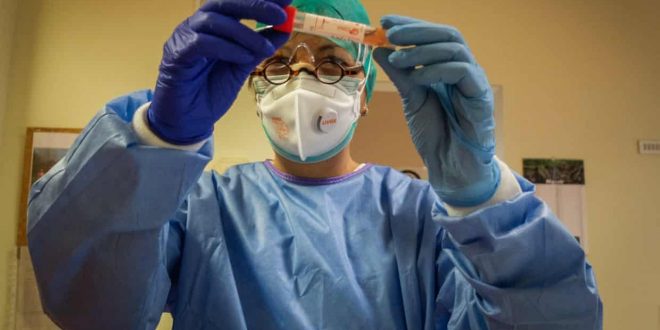Covid-19 has now been afflicting humans for six months – first in China and later in other nations as the virus embarked on its global conquest. The experience has been a grim one for our species. To date, more than six million people have been infected and an estimated 400,000 have died, a toll that will inevitably continue to rise for years to come.
Our world has been transformed in the process. Lockdowns have been imposed, borders have been closed, care homes for the elderly have been ravaged by illness, and national economies placed under extreme strain.
Yet we have only reached the halfway point of the disease’s progress towards its first anniversary, timing that raises a host of concerns and questions about our ability to navigate our way through this pandemic. What exactly have we learned about Covid-19 over the past six months? How quickly and how well have we responded to the challenges posed by it?
And, much more importantly, what questions do we most urgently need to answer over the next six months? Answers from researchers and doctors should tell us how we might survive one of the worst crises to affect humanity in modern times.
Were we ready?
One emphatic response from scientists stresses that it is now clear we were very badly prepared for the arrival of Covid-19. “This disease has turned out to be much worse than any of the pandemics that we had been anticipating and making plans to counter,” said Martin Hibberd, professor of emerging infectious diseases at the London School of Hygiene & Tropical Medicine.
“It has a 1% death rate and it is highly transmissible, features that were considered to be highly unlikely for any new emerging disease we thought we might face. Such features represent the worst possible realistic scenario that we could envisage and lie at the very limit of what we thought we should expect. So the pandemic we have got now is about as bad as we thought it could ever get. It is a very sobering prospect.”
This point was also stressed by David Nabarro, professor of global health at Imperial College London, and an envoy for the World Health Organization on Covid-19. “When we first encountered this disease, we thought it was just a respiratory illness that affected the upper part of the chest. Now it is clear that it can cause illnesses of the sinus; can affect the lining of blood vessels and can lead to blood clots developing. The disease has also been linked to extreme fatigue, kidney damage and heart attacks – and quite often in relatively young people. This is not a disease to be underestimated.”
Nor is it likely to disappear in the near future, added Mark Woolhouse, professor of infectious disease epidemiology at Edinburgh University. “Having lived with Covid-19 for six months now, the most important thing we have learned is that we are going to have to live with it for an awful lot longer. Essentially we are six months into a lifelong relationship.”
Disease of old age
“The one key feature that we have come to appreciate about Covid-19 is that it is a disease of old age,” he said. “The chance that a person over 75 will die from it is actually 10,000 times greater than it is for a 15-year-old who gets infected. It is really striking.”
The problems concerning the disease’s impact on adults start when a person reaches 50 and get exponentially greater for each additional year of age. “That means a significant proportion of our population – those over 75 – need protecting from this virus because its consequences for them are extremely serious,” added Woolhouse. “But is it right to lock up grandchildren to save their grandparents? In a sense that is what we have been doing up until now.”
One idea would be to put extremely strict biosecurity systems around care homes to ensure the coronavirus never gets into them. Staff – from cleaners to carers – would be tested constantly for the presence of the virus. “Nobody would be allowed to enter without a same-day test,” said Woolhouse. “It is as simple as that.”
But as Woolhouse acknowledged, the vast majority of those over 75 don’t live in care homes. They live in their own houses. “That means we are going to have to invent the concept of household biosecurity for these people. That is one of the most urgent tasks we now face.”
 Lebanese Ministry of Information
Lebanese Ministry of Information



